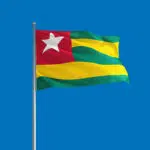Most of us have an innate understanding of music. Even if we can’t play an instrument, or even sing, somehow, we can connect with rhythms and melodies. Heck, even plants understand music. Did you know they tend to grow faster after a generous helping of classical music? It’s true. World Day of Music or Fête de la Musique, celebrated each June 21, was first started in France but today highlights music’s universal appeal. It’s meant to make music more inclusive and encourage people of varying skill levels to interact a lot more with all types of tunes. World Day of Music is also an opportunity for musicians to build their presence and connect with their audience on social media.
History of World Day of Music
From the oldest musical instrument in the world — the Neanderthal flute, made by Neanderthals 60,000 years ago — to present-day electronic instruments, music has become a significant part of our daily lives. Other than being pleasant to listen to, music is a form of expression — the right melody resonates with feelings better than words can, and music transcends borders. This is exactly what World Day of Music aims for — bringing people together, and breaking barriers and boundaries through music.
World Day of Music initially started in France. When Maurice Fleuret became the Director of Music and Dance at the Ministry of Culture in October 1981, he applied his perspective on musical practice: “the music everywhere and the concert nowhere.” In a study written in 1982 on French cultural habits, Fleuret discovered that every one out of two people played a musical instrument. Inspired by this, he started thinking of a way to bring people together on the streets with music. This is how the first Day of Music, or ‘Fête de la Musique,’ took place in Paris in 1982.
Fête de la Musique promoted music in two ways: by encouraging new and professional musicians to perform in the streets and by organizing free music concerts, covering all genres of music, so that the public could be exposed to new music. Under the slogan ‘Faites de la musique’ (‘Make music’), the official Fête de la Musique organization in Paris advocated for concerts to be made free to the public and that artists play free of charge. This was broadly applicable to other participating cities as well.
Over the past few years, the festival gained international popularity, eventually being celebrated by more than 120 countries around the world. The day evolved to finally become World Day of Music, World Music Day, or International Music Day.
World Day of Music timeline
French composer and the future founder of Fête de la Musique, Maurice Fleuret, is born.
The future founder of Fête de la Musique, Maurice Fleuret, is appointed to the post of Director of Music and Dance — he aims to make music accessible to a lot more people in France.
Fleuret, together with Lang, announces Fête de la Musique in Paris on June 21, which is also the day of the summer solstice.
The concept of Fête de la Musique is adopted by several countries around the world, and becomes an annual fixture on the global calendar.
World Day of Music FAQs
Who started World Music Day?
World Music Day was founded by France’s Minister of Culture, Jack Lang as well as Maurice Fleuret, a French composer, music journalist, radio producer, arts administrator, and festival organizer, on the day of the summer solstice in Paris in 1982.
What date is National Music Day?
Music Day U.K., formally National Music Day and National Music Festival, is the name for the British component of the annual celebrations of music that takes place around the world on June 21.
How is Music Day celebrated in France?
Every June 21, France houses more than 18,000 concerts with no less than 5 million amateur musicians and singers who bring together nearly 10 million spectators. 97% of French people know about Music Day! Usually, bars and restaurants have to close at around half past midnight.
World Day of Music Activities
Learn an instrument
Don't worry. Everyone's a beginner at some point. Even Paul Simon had to start somewhere. Use this day as an excuse to sign up for lessons. Or teach yourself. There's always YouTube.
Create some homemade music
Even if you can't play a genuine instrument yet, grab some everyday household objects, get together with your friends, and jam away. The music-making process can be therapeutic.
Discover new artists
Go out of your way to explore new genres. Put your Spotify subscription to good use. Even better, go to your neighborhood record store (if you have one), and do some crate digging. You will be surprised at your discoveries.
5 Amazing Facts About French Music And Musicians
Frank Sinatra’s ‘My Way’ was originally French
‘My Way,’ Frank Sinatra’s biggest hit, was adapted from a French song, ‘Comme d’habitude,’ which was composed, written, and sung by French people.
Edith Piaf’s funeral stopped traffic in Paris
Since World War II, Edith Piaf’s funeral is the only occasion to have completely stopped traffic in Paris.
The French are very proud of their music
The French are so proud of their music, they had a special law enforced that requires at least 40% of the music on private radio stations to be of French origin.
The biggest-ever audience for a performance
Jean Michel Jarre is the artist with the biggest-ever audience — 3.5 million people came to see him perform in Moscow in 1997.
A vastly covered song
‘La Mer’ by Charles Trenet has been covered a total of 4,000 times, including one version by Cliff Richard.
Why We Love World Day of Music
Party time
There are spontaneous music-related events in most cities around the world. In Paris, for example, people can be seen dancing on the streets all night long. Celebrating the summer solstice doesn't get more fun than this!
Free concerts
The idea behind the day is to encourage everybody to participate in music. That's why lots of cities organize free events for all to enjoy.
Amateur musicians get their chance to shine
Not sure of your talent level? World Day of Music is the perfect opportunity to showcase your skills. Just pick up your instrument and take to the streets. A lot of amateur musicians in major cities around the world do exactly that on this day!
World Day of Music dates
| Year | Date | Day |
|---|---|---|
| 2026 | June 21 | Sunday |
| 2027 | June 21 | Monday |
| 2028 | June 21 | Wednesday |
| 2029 | June 21 | Thursday |
| 2030 | June 21 | Friday |









































